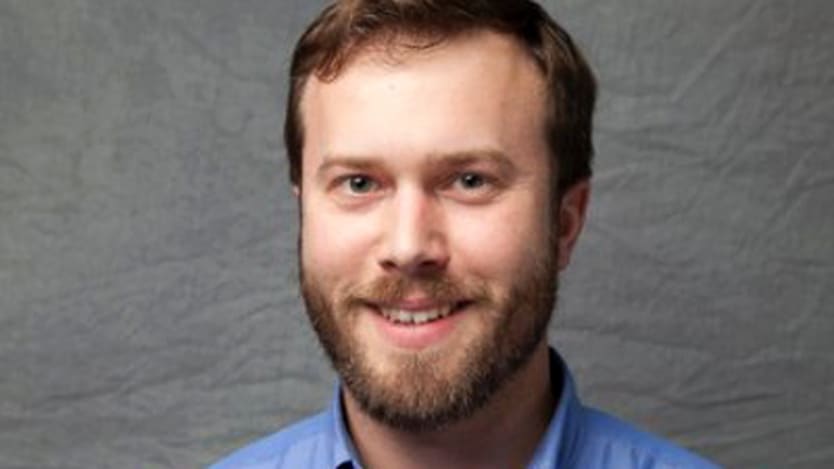
DAVOS, Switzerland — The Bill & Melinda Gates Foundation is bringing Philip Welkhoff of the Institute for Disease Modeling on as its new malaria program director, Devex has learned.
At last month’s World Economic Forum meetings, Gates Foundation co-chair Bill Gates spoke with Devex about the announcement, which until then had only been made to partners, grantees, and other key contacts.
The appointment reflects the interest the foundation has in leveraging simulations to accelerate progress toward the national elimination and eventually global eradication of malaria, Gates said.
“If we don’t have modeling, we won’t really understand how you get to zero,” Gates told Devex of his thought process 10 years ago when, within a few weeks of the appointment of Margaret Chan to lead the World Health Organization, he helped to start the Institute for Disease Modeling.
The Institute for Disease Modeling is part of Global Good at Intellectual Ventures, a fund that is focused on inventing, developing, and deploying technologies for the poorest parts of the world, which was set up with funding from the Bill & Melinda Gates Asset Trust.
Gates vs. Malaria: How Bill Gates aims to win the fight of his life
Bill Gates aims to eradicate malaria from the face of the earth — and he could be in for the fight of his life. On the sidelines of Davos, he tells Devex’s Raj Kumar how a comprehensive approach, including innovative new tools, could one day make this disease history.
“We’ve built up modeling tools that help us understand, given certain interventions, what chance do you have of not only clearing the human reservoir, but also maintaining that when you’re going to have people coming into the area who have some degree of infection,” Gates said at an event his foundation organized to put malaria on the agenda in Davos.
Welkhoff grew up at a humanitarian hospital on the north coast of Haiti, where he frequently suffered from malaria, and developed an interest in disease transmission. He went on to study at the University of Texas and Princeton, where he got his doctorate in applied and computational mathematics, and began his work on mathematical models of disease transmission including malaria. In addition to working for more than a decade at the Institute for Disease Modeling, he has worked as an external reviewer and pro bono external adviser for the Gates Foundation.
New campaign seeks to reignite political support for the fight against malaria
After the 2017 World Malaria Report revealed the fight against history's deadliest disease is stalling, the #MalariaMustDie campaign launched Wednesday, using celebrities and emojis to drive public awareness and increase political pressure, as partners come together to get the malaria fight back on track.
Welkhoff is replacing Dan Hartman, who will continue in his capacity as director of integrated development, a team that provides technical expertise in drug and diagnostic development, working with the malaria team as senior adviser. Hartman was serving as the interim director of the malaria team following the sudden death of Alan Magill, the former director of the malaria program, in 2015. Gates told Devex he considers Welkhoff to be a “super smart person,” and together they will work to “shrink the map” of malaria over the next decade, with the hope of eradicating malaria within a 20-year timeframe.
“With his nearly unparalleled expertise in advanced informatics and mathematical modeling, Philip has deepened the global malaria community’s understanding of the complex biological systems that perpetuate cycles of infection and reinfection,” Trevor Mundel, president of global health at the Gates Foundation, said in a note about the appointment. “His simulations also are helping the foundation and its partners accelerate progress toward elimination in tough contexts, using customized interventions that combine old and new tools and are tailored to the demands of specific populations and environments. The world desperately needs new tools and strategies to fight malaria, and I believe Philip’s leadership in this area will help maximize the impact of global malaria investment and sustain international commitment to creating a malaria-free world.”
This new role at the Gates Foundation will allow Welkhoff to join colleagues hard at work not only on malaria but also some of his other areas of interest.
“Beyond modeling disease eradication, Philip’s research interests include technologies for improved public health in the developing world, as well as other global development issues, such as vaccine delivery, developing world nutrition and agriculture, and improved sanitation,” his bio reads.
In a recent interview, he called malaria eradication, and disease eradication in general, an interdisciplinary problem.
“When you have a question that’s really core to your part of the problem, and you bounce it off someone from one of these other disciplines, often they will come up with a better way of actually framing and looking at your specific question,” he said.
At the Gates foundation, he will bring his expertise in disease modeling together with experts in drug development, vector biology, health systems and logistics, and more in pursuit of a shared mission to end malaria.
Stay tuned for a Devex interview with Welkhoff after he joins the foundation in March.








